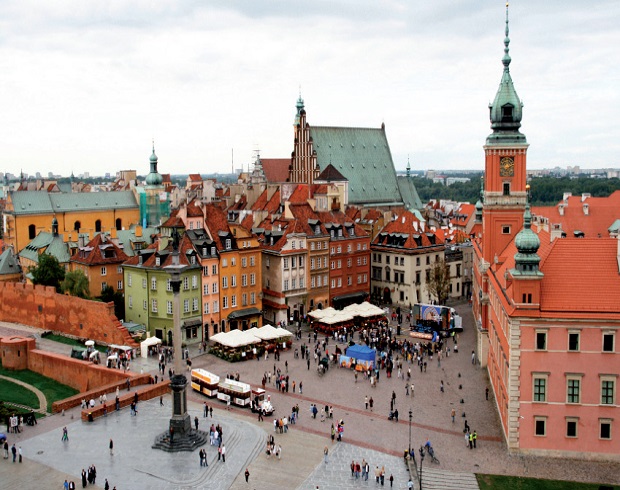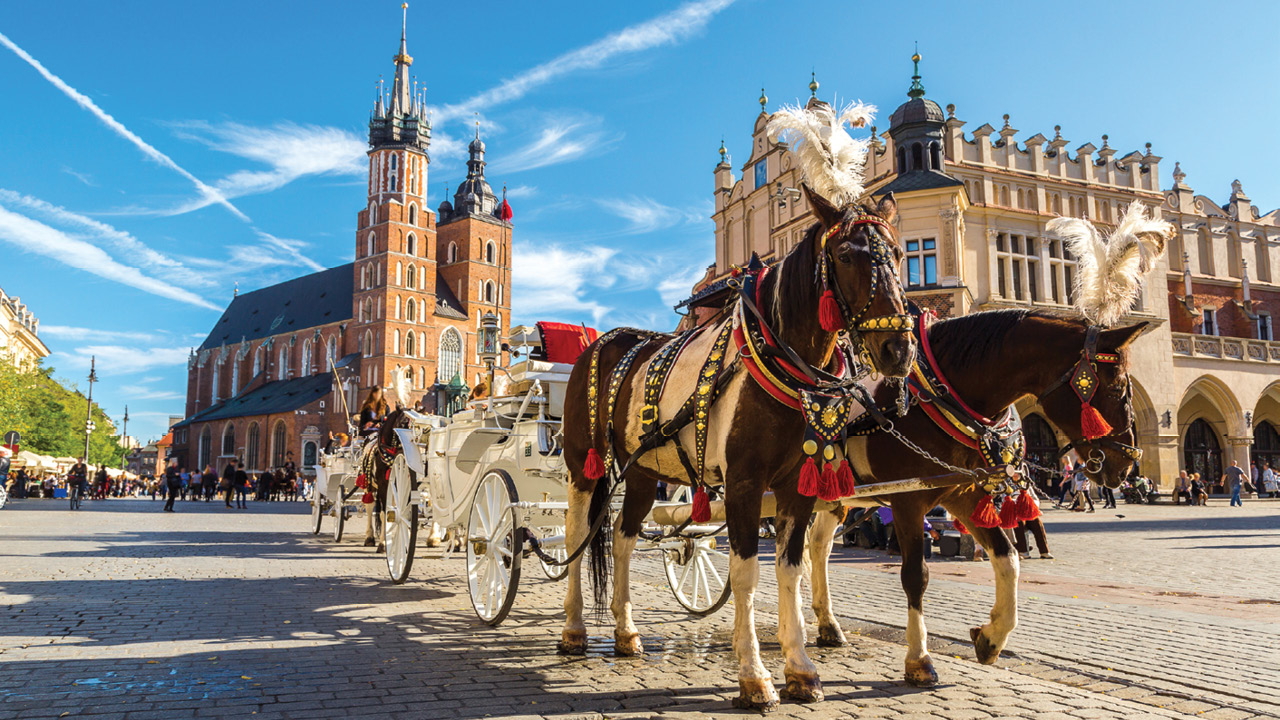Sights and Sounds of Poland

A few weeks ago, I was the guest of the Government of Poland at the European Economic Congress held in the southeastern Polish industrial city of Katowice. I arrived on a cold and blustery spring mid morning into Warsaw’s Chopin International Airport. Surprise number one: the world-renowned composer and piano virtuoso Francois Frédéric François Chopin was actually born in 1810 as Fryderyk Franciszek Chopin in Warsaw and became a musical child prodigy before moving to Paris at the age of 18. Poland, his country of birth never forgot him and has awarded him the national honor of naming its gateway into the country after him. (Eleven years after receiving the Nobel Peace Prize in 2004, there is no visible memorial that Wangari Maathai originated in Kenya. None whatsoever)

City of Katowice
Image from https://upload.wikimedia.org
I must say that I was ecstatic when I bumped into a former work colleague who had undertaken his university studies in Poland and was also part of the entourage. It meant that I had a familiar guide who, I erroneously thought, would help me navigate 100% polish speaking territory. Surprise number two: I didn’t need a Kenyan polish speaking guide to move around. All the signs in the airport were in both Polish and English. Now, in this part of the sun kissed African world, mention Poland and it immediately conjures up images of a grey, undisputed card carrying member of the former Soviet driven Eastern bloc. But Poland’s long and tortuous road to becoming a jewel in Europe’s crown began over 40 years ago. And it is this journey that convinced me that many African countries have hope for economic transformation within a single generation.
In the 1970s, Edward Gierek, the First Secretary of the Polish United Workers’ Party racked up an unsustainable debt to the West. Coupled with an unproductive and centrally planned economy, the country was unable to handle the debt payments leading into an economic crisis. Basic goods started disappearing from store shelves. As one fairly young speaker at the Congress stated when he heard an African contributor lamenting about poor economic policies in his country, “In Poland in the eighties, if one found people standing in a line, one would join the queue and only find out what was being sold at the end of the queue. We have now transformed into the 6th largest GDP in the European Union. You can do it as Africans too!” The African contributor slunk back into his seat quietly.
Anyway, back to Poland’s interesting history. By the 1980s, the economic crisis had grown spurring multiple protests. An independent trade union known as Solidarność (or Solidarity in English) became the main force behind the protests with many workers as well as intellectuals joining it. At its height the trade union had well over 10 million members. In the face of social opposition and a deepening economic crisis, the troubled communists began the famous Round Table Talks that resulted in the first democratic elections in the Eastern Bloc taking place in 1989 in Poland.

Image from http://viahansadmc.com
If you are a purveyor of conspiracy theories, you would greatly enjoy a book by Gordon Thomas called “Gideon’s Spies: The Secret History of the Mossad.” In the fairly well written book, the writer reveals a number of Mossad operations and discoveries, a key one of which is who ordered the miraculously bungled assassination attempt of Pope John Paul II, himself of Polish descent. According to Thomas, Mehmet Ali Ağca – the Turkish assassin who shot the Pope in May 1981 – was actually recruited and funded by the Soviet Union, as the Pope’s influential office was thought to spur the influence and efficacy of the Solidarity movement on the world stage.
But I digress. In the 1990s, a free market replaced the centrally planned economy, privatization of state entities was embarked upon and the Warsaw Stock Exchange was launched. Surprise number three: While Poland joined the European Union in 2004, it still remains outside of the monetary union and operates its own currency, the Zloty, meaning that the cost of living is much lower than other countries in the Eurozone and they are therefore able to place themselves as an attractive destination due to competitive labor costs.
Consequently, Poland enjoys the benefits of European Union such as access to a single market with no trade (or physical) barriers as well as access to EU funding. Poland has a population similar to Kenya’s at 38.5 million people, 60% who live in cities and 50% who are under the age of 38. 16 million are professionally active and the government ensured that English is now a mandatory subject in primary and high school leading to a population that attracts world class companies looking to set up strategic businesses such as IBM, LG, Procter & Gamble, Siemens and Samsung Electronics to name a few. It’s ability to attract the highest level of foreign direct investment in Central Europe as well as its large and rapidly developing domestic market meant that it was the only EU country that did not experience a single quarter of GDP decline at the height of the 2008 global financial crisis.

Image from https://i.gocollette.com
The Poles were quick to admit that while they were slow to the “doing business with Africa” party, they were in it to win it particularly in the agri-business field. At the Congress, every nook and cranny was filled with cafés giving out specialized coffee drinks. The Polish are enormous coffee drinkers and one Café owner had expressed interest to a Kenyan colleague in sourcing good coffee beans. Patryk, my Polish handler, noted with some humor that he had never seen so many black Polish speakers gathered in one room. Clearly the Polish policy of granting university scholarships in the eighties and nineties was reaping rewards. The Poles want to do business in Africa but, as one of the Kenyan panelists advised them, they need to get high-level Polish government dignitaries to be the face of this agenda. Africa is ready.
Twitter: @carolmusyoka

 carolmusyoka consultancy
carolmusyoka consultancy
 @carolmusyoka
@carolmusyoka